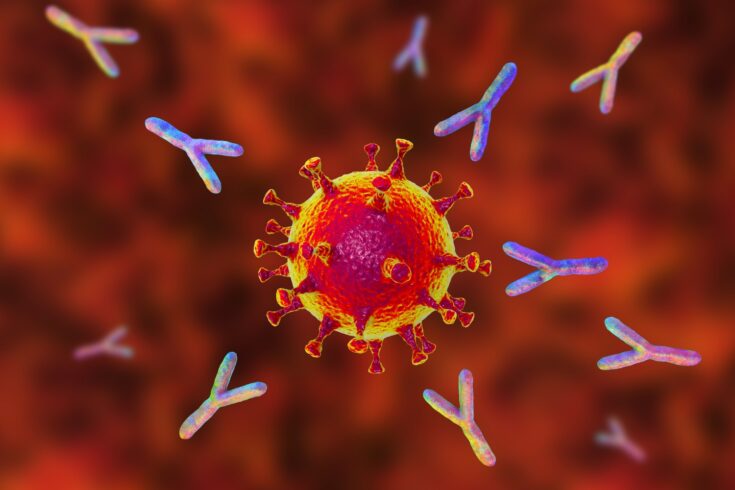Today marks the UK’s two-year anniversary of the first COVID-19 lockdown.
UK Research and Innovation (UKRI) has funded some of the major research efforts in the UK and globally, which have helped us get to where we are today.
While the pandemic is not over, we reflect on the timeline of UKRI funded research that has shaped the pandemic response.
Rapid response funding
23 March 2020, UKRI confirms the first projects to receive rapid response funding, including the RECOVERY trial and the research that led to the development of the Oxford AstraZeneca vaccine.
The RECOVERY trial was launched by the University of Oxford with support from UKRI and the National Institute for Health Research (NIHR) shortly after the coronavirus was detected in China.
It soon became the fastest-recruiting treatment trial in medical history and delivered three results that changed global practice within 100 days.
Treatments
This included the first major breakthrough in the pandemic, the finding that the inexpensive steroid, dexamethasone (June 2020), saves the lives of seriously ill patients.
Other treatments discovered from the trial include:
- Tocilizumab (February 2021)
- Regeneron’s monoclonal antibody (June 2021)
- Baricitinib (March 2022).
RECOVERY is continuing to test other treatments and has expanded internationally to continue to help clinicians around the world provide the best treatments for hospitalised patients.
The Oxford AstraZeneca vaccine was developed through the rapid response funding support from UKRI and NIHR.
Quick vaccine rollout
The speed of rollout of the vaccine is a success story for UKRI funded research, which has supported research into a vaccine for the Middle East Respiratory Syndrome since 2016.
The project, led by the University of Oxford, rapidly developed and executed a clinical development plan, ensuring the vaccine received approval for emergency use by the end of 2020.
The vaccine is being supplied to the COVAX Facility, led by GAVI, the Coalition for Epidemic Preparedness Innovations and the World Health Organization.
They will distribute vaccines to low and middle-income countries.
Over 2.6 billion doses are estimated to have helped:
- prevent 50 million COVID-19 cases
- prevent five million hospitalisations
- save more than one million lives.
Genetics consortium
April 2020 saw the launch of the COVID-19 Genomics UK (COG-UK) consortium, a genetics consortium that has led the world in identifying virus variants.
COG-UK is a UK wide association of partners, which includes:
- the four UK public health agencies
- the Wellcome Sanger Institute
- sixteen academic partners from:
- England
- Scotland
- Wales
- Northern Ireland.
COG-UK generated the data that enabled identification of the Alpha variant (December 2020) and tracking of variants of concern in general.
COG-UK adopted large scale rapid genome sequencing of the virus, SARS-CoV-2 causing the COVID-19 pandemic.
Between March 2020 and October 2021, more than one million genomes were sequenced by COG-UK, helping scientists understand viral transmission and evolution.
Early warning systems
June 2020 saw the formation of the National COVID-19 Wastewater Epidemiology Surveillance Programme.
A programme funded by UKRI, which has brought together scientists and collaborators from 23 organisations to develop early warning systems that can detect levels of coronavirus in sewage.
Through testing several hundred sewage treatment sites across the UK, environmental microbiologists found tracing the viral genetic material in sewage systems an effective method to monitor infection.
Research conducted by participating universities within the programme, led by the UK Centre for Ecology and Hydrology, contributed to insights and innovation in the four nation’s wastewater monitoring programmes.
This, as well as trials in schools, universities, prisons, and care homes have aided government efforts to control the spread of SARS-CoV-2.
Long COVID
In February 2021 the COVID-19 surveillance programme run by Imperial College London revealed the potential for long COVID in adults.
The REACT-LC study examined data from half a million adults and found a third with coronavirus reported symptoms for at least 12 weeks, which is classed as long COVID.
Data also showed that the following people were more susceptible to developing the condition:
- women
- older people
- people who smoke
- those overweight or obese
- those living in deprived areas.
The study is an expansion of the Department of Health and Social Care funded REACT programme, which found Asian people were less likely to report persistent symptoms suggestive of long COVID.
£554 million, 3,300 initiatives
UKRI invested over £554 million in over 3,300 new COVID-19 research and innovation initiatives from 2020 to 2021.
This is in addition to the many active research projects repurposed to tackle COVID-19 and longstanding investments in institutes, centres and units. Many of which were on the frontline of COVID-19 research.
The research and innovation born from the pandemic continues to drive recovery in many different aspects of our lives.

